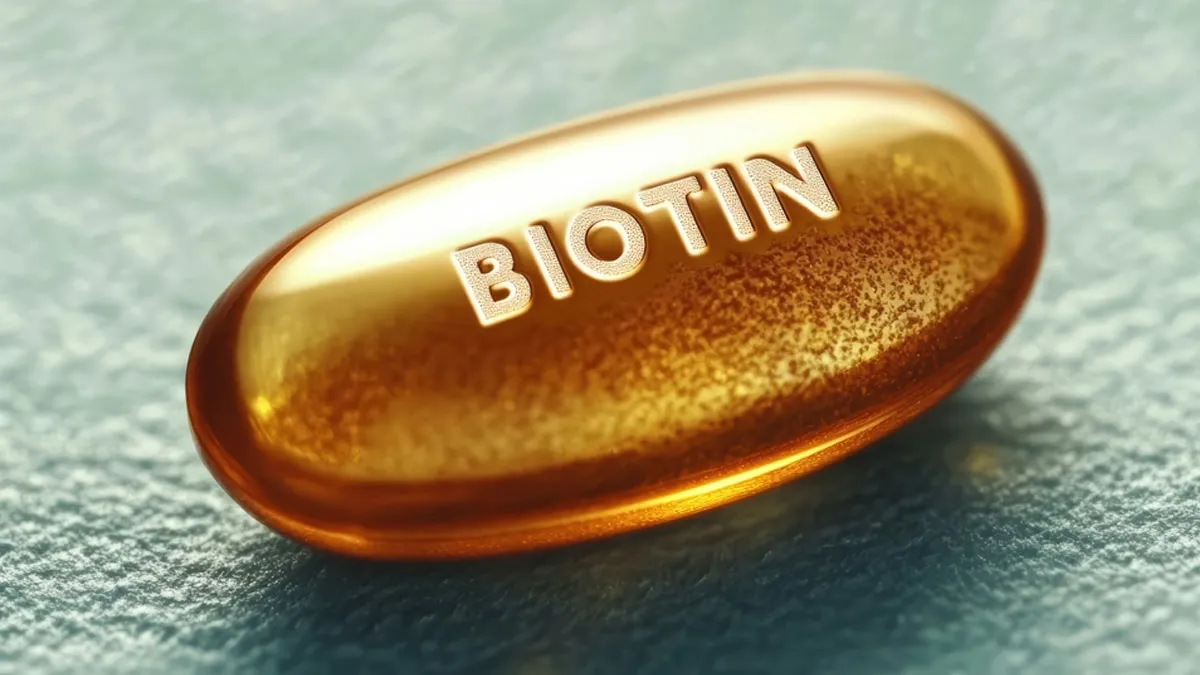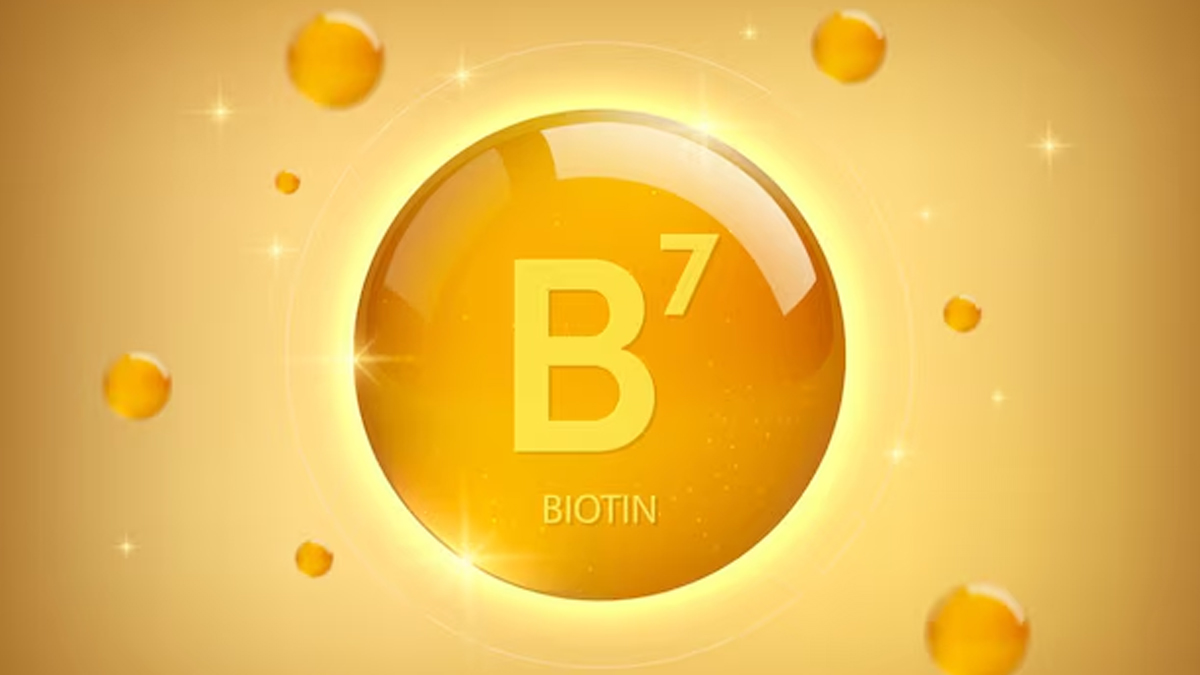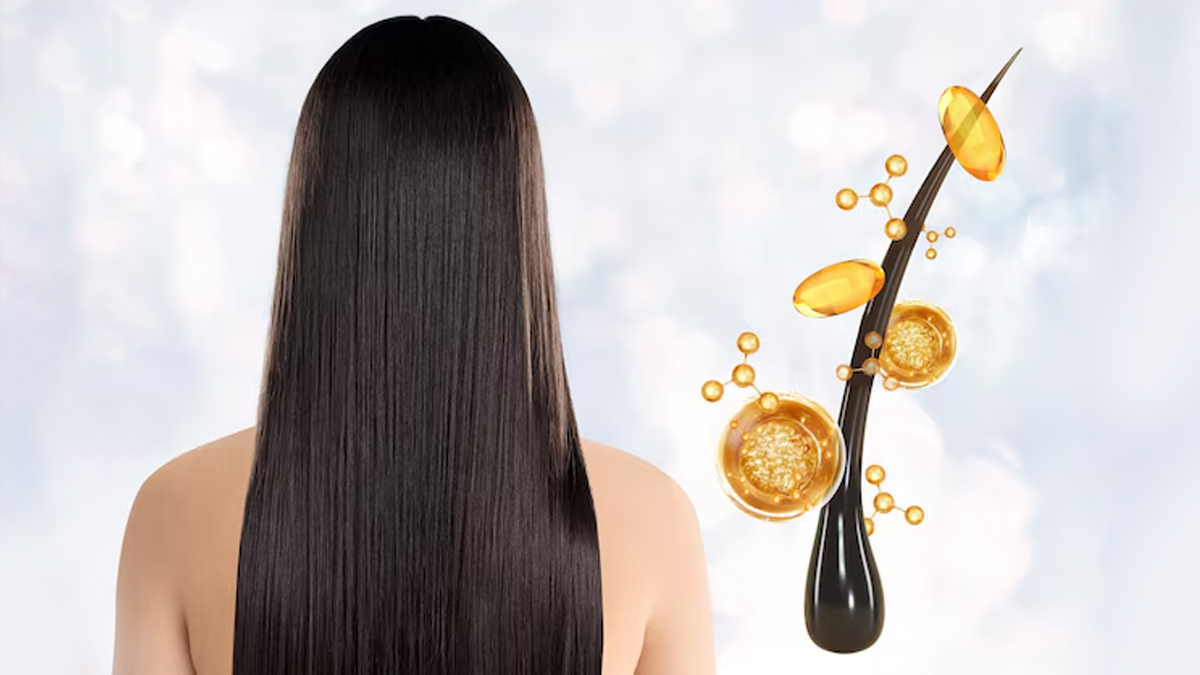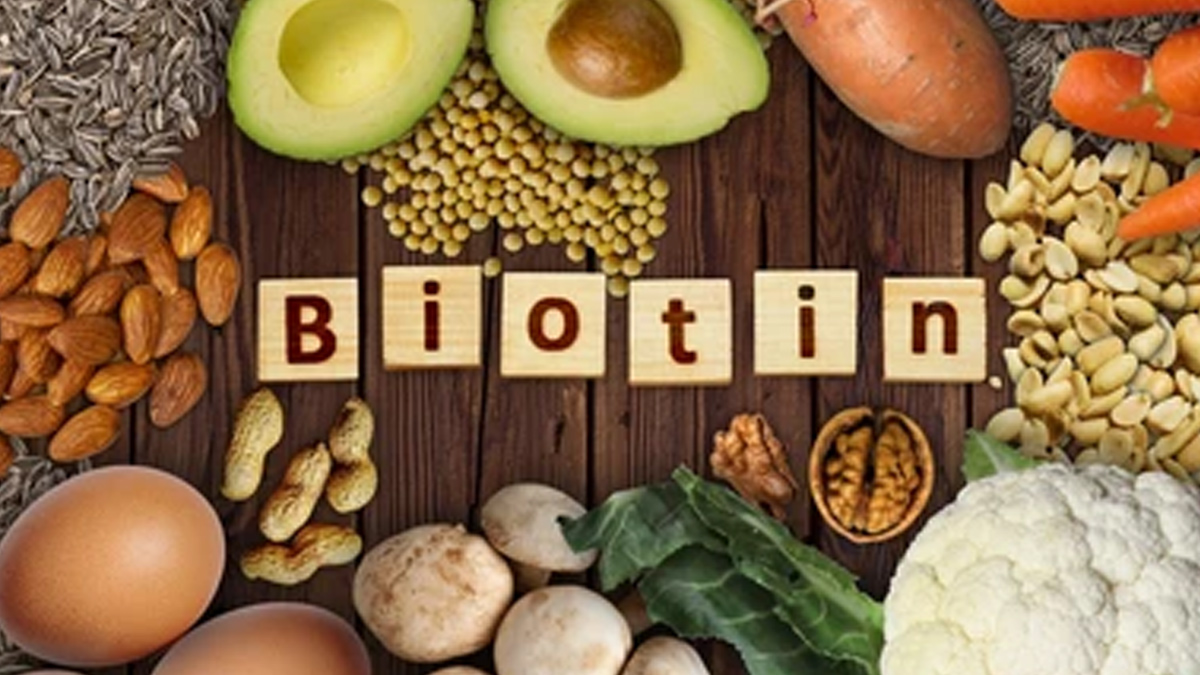
Hair fall is one of those silent beauty battles many of us are fighting: waking up to strands on the pillow, hair clogging the drain, or that constant urge to Google 'best oil for hair growth. In the middle of this never-ending quest for luscious locks, one name keeps popping up: Biotin. But what exactly is biotin, and does it help with hair growth, or is it just another overhyped trend in shiny packaging?
Table of Content:-
What Is Biotin?

Biotin, also known as vitamin B7, assists the body in the process of converting food to energy and also plays a significant part in the health of your nails, skin, and hair. Our body requires a small quantity of biotin, and we get it primarily through our diet (eggs, seeds, nuts, sweet potatoes, spinach, and bananas. But in situations where your biotin levels are low (because of diet, medical issues, or some medications), it may manifest as brittle nails, skin problems, or hair loss.
How Does Biotin Help With Hair Growth?

Biotin allows for the production of keratin, the building block protein that makes up your hair, skin, and nails. It doesn't make hair grow overnight, but it promotes thicker hair structure and healthy hair regrowth in the long run. Here’s how:
- Promotes stronger strands: Biotin strengthens the keratin structure in the hair shaft, making hair more durable against breakage.
- Improves scalp health: A healthy scalp is the key to healthy hair. Biotin facilitates improved blood flow and delivery of nutrients to the follicles.
- Supports hair regrowth: For individuals with hair thinning or sluggish hair growth due to biotin deficiency, supplements can help regain hair volume and texture in the long run.
Also Read: What Is The Right Age For Women To Start Having Biotin Supplements? Know From Our Expert
What Does the Research Say?
Scientific studies about the influence of biotin on hair growth keep evolving. A 2017 review published in the Journal of the American Academy of Dermatology concluded that patients with underlying biotin deficiency noticed changes in hair condition after taking biotin supplements. However, in individuals with normal biotin levels, the results are not so dramatic.
A 2018 study highlights that although biotin is necessary, the majority of individuals receive sufficient levels through their diets.
In a different study published in the Journal of Clinical and Aesthetic Dermatology, biotin with other necessary nutrients can be helpful for people suffering from hair thinning when underlying deficiencies exist.
Should You Get Tested?
Most people get enough biotin through their diet, but if you’re experiencing sudden hair loss, brittle nails, or dull skin, it may be worth checking your biotin levels. Speak with a healthcare provider before starting supplements, especially since excessive biotin intake can interfere with lab test results (like thyroid or heart-related tests).
Also Read: 9 High Biotin Foods You Should Be Eating Everyday For A Month For Better Skin And Hair
How Much Biotin Do You Need?
The recommended daily intake for biotin is around 30 micrograms (mcg) for adults. You’ll find biotin in multivitamins, hair supplements, or as stand-alone pills in doses ranging from 1,000 mcg to 10,000 mcg. The higher doses are generally safe, but always go with what your body needs, not what social media says.
Natural Sources of Biotin
Before rushing to buy supplements, you can boost your biotin intake naturally. Add these to your plate:

- Eggs (especially the yolk)
- Almonds and walnuts
- Spinach and broccoli
- Sweet potatoes
- Mushrooms
- Whole grains
- Bananas and avocados
It is possible that cooking can destroy biotin found in foods, so have a combination of raw and cooked biotin-sufficient foods on your plate.
Do You Need Biotin Shampoos?
Oral supplements cannot be replaced by biotin shampoos and serums but can still strengthen hair from the outside and reduce breakage. They work best in addition to a balanced diet, gentle hair treatment, and minimal use of heat or chemicals.
[Disclaimer: This article contains information for informational purposes only. Hence, we advise you to consult your professional if you are dealing with any health issue to avoid complications.]
Also watch this video
How we keep this article up to date:
We work with experts and keep a close eye on the latest in health and wellness. Whenever there is a new research or helpful information, we update our articles with accurate and useful advice.
Current Version